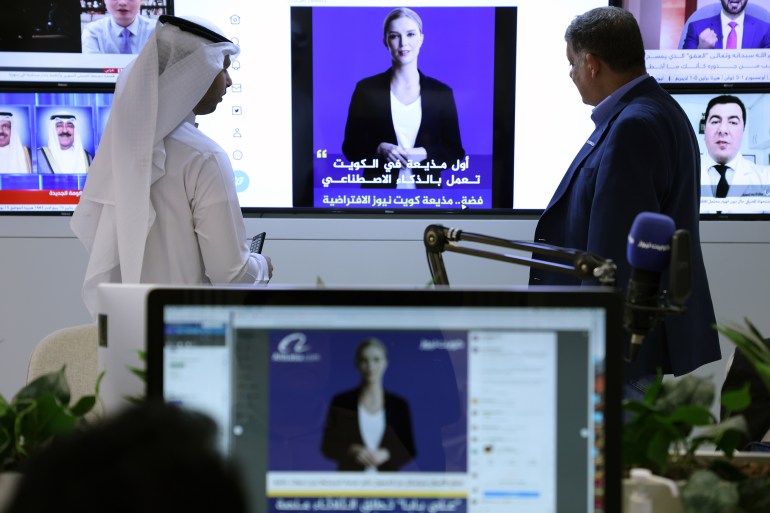‘Fedha’ appeared on the Twitter account of the Kuwait News, with plans for it to read online bulletins.
A Kuwaiti media outlet has unveiled a virtual news presenter generated using artificial intelligence, with plans for it to read online bulletins.
“Fedha” appeared on the Twitter account of the Kuwait News website as an image of a woman, her light-colored hair uncovered, wearing a black jacket and white T-shirt.
“I’m Fedha, the first presenter in Kuwait who works with artificial intelligence at Kuwait News. What kind of news do you prefer? Let’s hear your opinions,” she heard saying in classical Arabic.
أول مذيعة في #الكويت تعمل بالذكاء الاصطناعي
• #فضة.. مذيعة #كويت_نيوز الافتراضية
• ما هي نوعية الأخبار التي تفضلونها بتقديم #فضة زميلتنا الجديدة؟ .. شاركونا آراءكم pic.twitter.com/VlVjasSdpb
— كويت نيوز (@KuwaitNews) April 8, 2023
Kuwait Times – which merged with Kuwait News in 2022 – was founded in 1961 as the Gulf region’s first English-language daily. Abdullah Boftain, deputy editor-in-chief of the publication and the website, said the move is a test of AI’s potential to offer “new and innovative content”.
He added that in the future, Fedha could adopt the Kuwaiti accent and present news bulletins on the site’s Twitter account.
“Fedha is a popular, old Kuwaiti name that refers to silver, the metal. We always imagine robots to be silver and metallic in color, so we combine the two,” Boftain said.

The presenter’s blonde hair and light-colored eyes reflect the oil-rich country’s diverse population of Kuwaitis and expatriates, according to Boftain.
The rapid rise of AI globally has raised the promise of benefits, such as in healthcare and the elimination of mundane tasks, but also fears, for example over its potential spread of disinformation and its threats to certain jobs and to artistic integrity.

